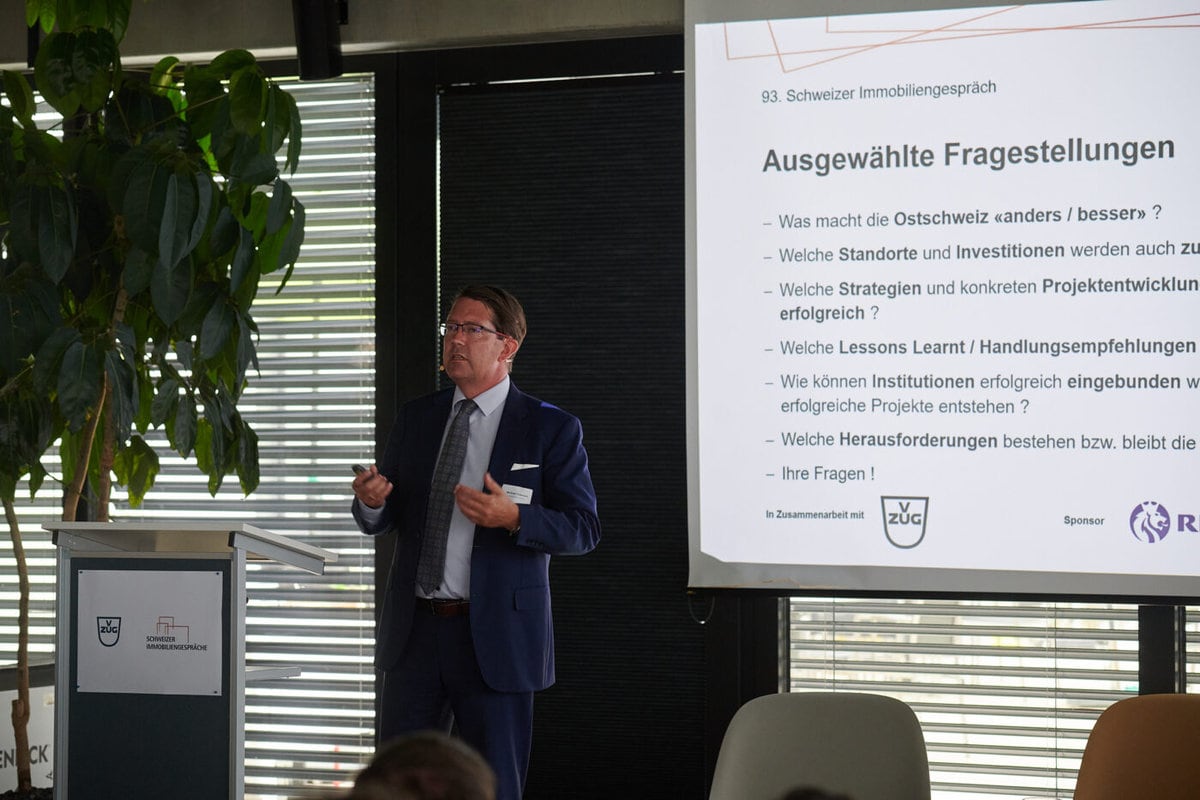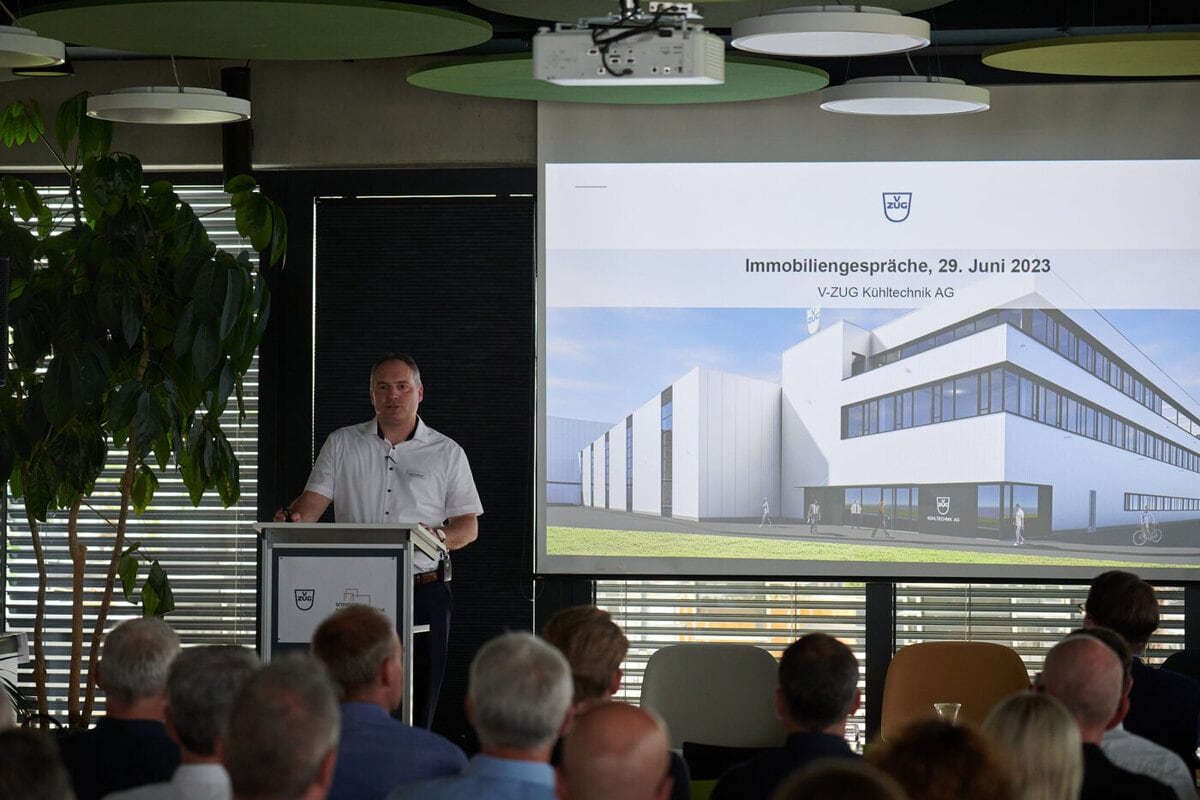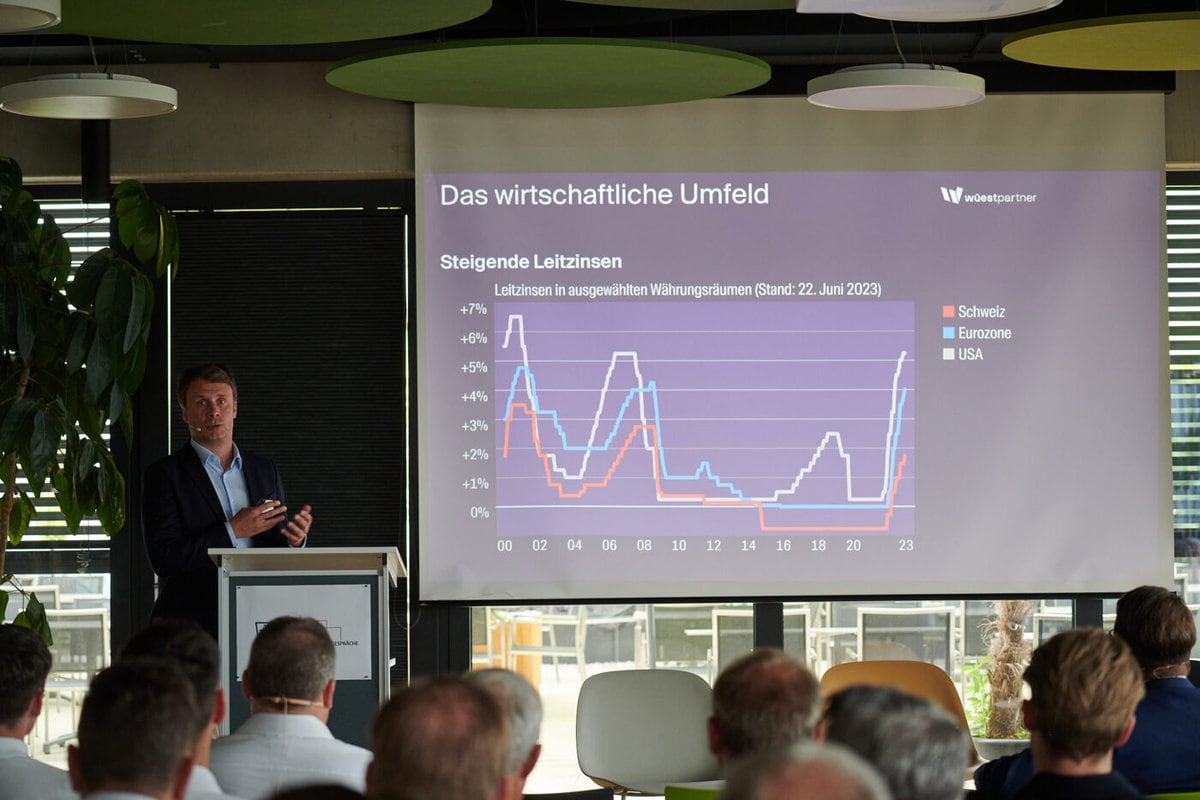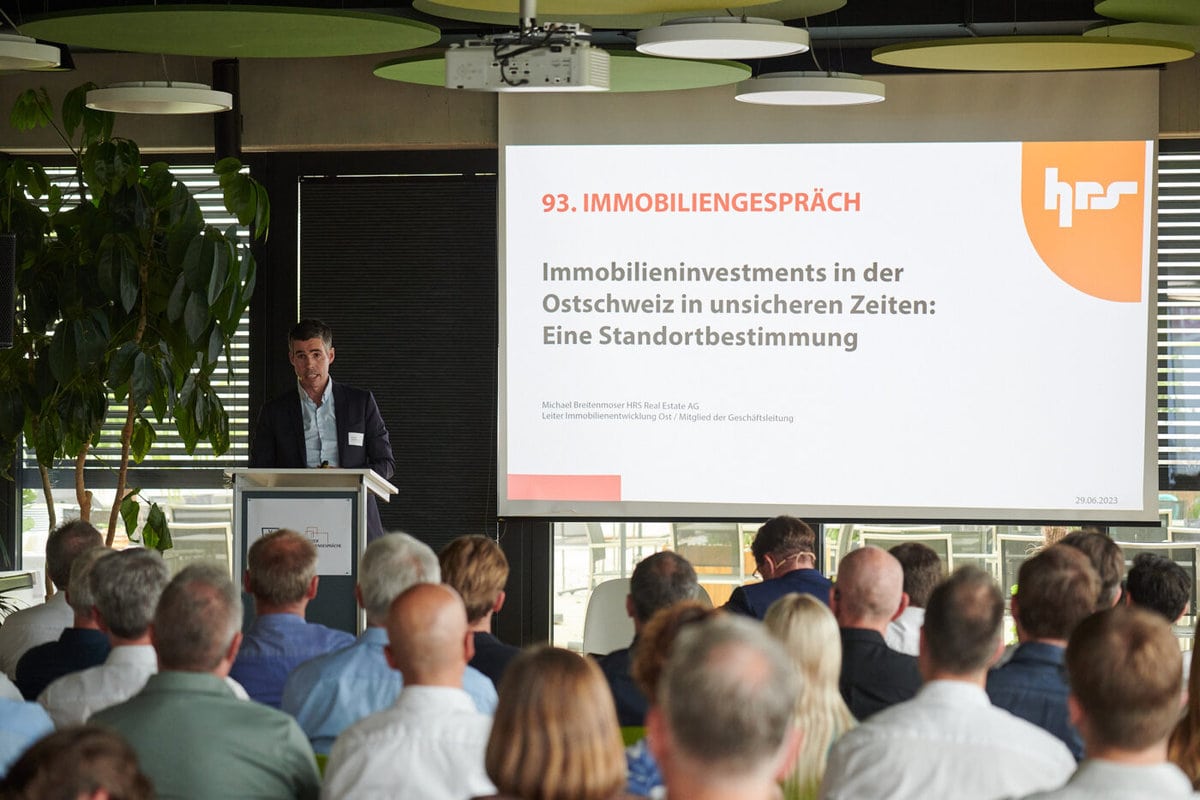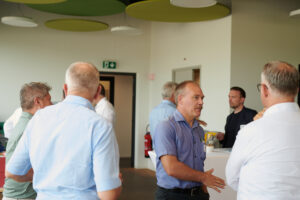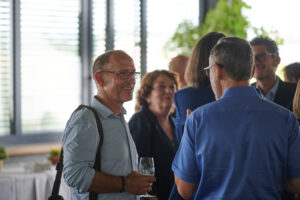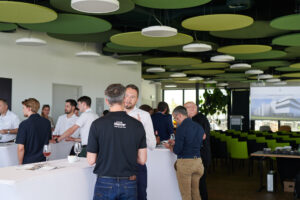Review of the 93rd Swiss Real Estate Talk
In Eastern Switzerland, a type of value creation is succeeding that seemed to have disappeared. The region is now competing with Zurich as a residential location, and real estate players are coming up with products that are in tune with the times. These were the insights that the participants of the latest Immobilien Business talk took home with them.
The 93rd Swiss Real Estate Talk on the topic of "Hotspot Eastern Switzerland" took place in Sulgen, a Thurgau municipality with a population of 3,500. It was an unusual venue for a real estate talk. But extraordinary things happen in Eastern Switzerland, and this was exemplified in Sulgen. Between Kreuzlingen and St. Gallen, a type of value creation has emerged that does not seem to fit in with the industrial logic of our time. Refrigerators have recently been built there. Many thought that the time for such production in Switzerland had come to an end. But V-Zug has countered the industrial migration trend with this innovative production facility. The plant has a high level of space efficiency and is CO²-neutral - thanks to photovoltaics, groundwater use and a heat pump.
Seven countries were considered as locations for the factory. The fact that Eastern Switzerland was chosen in the end was not a question of patriotism. With an investment of over 70 million Swiss francs, hard facts were the deciding factor. "At V-Zug, you can calculate very well," said Andreas Albrecht, Managing Director of the cooling technology division. The politicians acted decisively and did their part to make the relocation possible: It took the municipality and canton just three months to complete the rezoning. An industrial land swap with an agricultural zone took place, and V-Zug was soon able to start building.
Eastern Switzerland has written a "success story" in recent years, as moderator Michael Trübestein put it. The professor of real estate economics at the University of Lucerne posed the question at the "Real Estate Talk": What is Eastern Switzerland doing right, what is it perhaps even doing better than the rest of Switzerland? In the end, there was no simple answer; there are probably a number of factors that need to be mentioned. Far-sighted infrastructure measures, for example, lower real estate prices have also contributed to the development, and recently major megatrends, such as working from home, have also played into Eastern Switzerland's hands. "Many people who work in Zurich have expanded their search radius," said Robert Weinert, Head of Immo-Monitoring at Wüest Partner. If you only have to commute two or three days a week, the lower rents in Eastern Switzerland are a compelling argument. In the canton of St. Gallen in particular, Wüest Partner has noticed a strong increase in demand for housing from within Switzerland.
But Eastern Switzerland is still a tenants' market. This is according to Michael Breitenmoser, Head of Real Estate Development East at HRS. And the market is still small-scale compared to large cities such as Zurich. A company like HRS, which focuses on large projects, therefore has to come up with something to place large volumes on the market. Breitenmoser demonstrated how this works. A key element of the concept is to think about the different user groups, from young singles to families and senior citizens, and both tenants and owners. The "Neuhus" project in Rorschacherberg, for example, is based on the infrastructure cooperative, a residential concept that aims to offer users added value through living together. The core idea behind the model, which was developed together with "urban psychologist" Alice Hollenstein: Condominium owners and the investor of rental apartments organize themselves jointly to maintain the operation and the neighbourhood infrastructure, and the users of the neighbourhood are given access to communal areas, office space and overnight accommodation for guests.
Focusing on quality and taking the interests of the public into account has become part of the strategy for success, said Breitenmoser. Investors who think this way have new opportunities for densification strategies thanks to the clever legislation of the Canton of St. Gallen. HRS is trying to take advantage of this opportunity, for example with the 70-metre-high "Chez Fritz" high-rise in Buchs, the planning of which was made possible by a priority zone. This instrument has been in place since the first amendment to the cantonal planning and building law, and Breitenmoser sees further opportunities through the second amendment. This was passed in the fall and allows generous exceptions for special use plans by making them subject to optional referendums. Project developers clearly need to rethink their approach and see referendums as an opportunity to give their plans a high level of legitimacy.
Eastern Switzerland, which sometimes has a provincial image, is not lagging behind - the agility of its political institutions and the innovative strength of its players convey a different picture. However, Eastern Switzerland is also not detached from the larger economic structure of Switzerland and Europe, and so the talk in Sulgen also dealt with overarching issues. Of course, for the players in Eastern Switzerland too, much depends on the question of how interest rates will develop. Robert Weinert expressed a clear opinion on this: he does not believe that interest rate hikes will come to an end this year. For him, everything points to one or two more interest rate hikes - albeit with less momentum. And then there is the no less exciting question posed by Trübestein in the panel discussion: Are residential property prices too high in view of the interest rate level? Market expert Weinert does not believe that prices are massively overvalued and points out that demand has by no means disappeared. It is often more concrete now. Breitenmoser takes a similar view: although fewer interested parties are coming forward for HRS property projects in Eastern Switzerland, those who do come have often already made up their minds. He sees more reluctance among investors in the earlier project phases, but once the properties have been fully developed, buyers are still found. They occasionally come from further afield - they are attracted by the higher yields in Eastern Switzerland. Being a little behind on prices - this has also proven to be an advantage time and again.
The next real estate talk will take place in Zurich on September 19, 2023.







